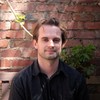Gus, a wrestling king with two mothers. Images via 'The Gayby Project'
Annons
VICE: Hey Maya. Why did you set out to document same-sex families?
Maya Newell: Well four years ago I saw this film called The Kids Are Alright, which depicted a lesbian family in America. I left the cinema feeling really on edge and uncomfortable. I was half way up the street when I realised I'd never seen my kind of family on a big screen before. Growing up with gay parents myself, I guess I wanted to make a documentary I would've loved seeing as a kid.Also during the last decade, we've had some really ugly debates around marriage equality. But while gays can't marry, they've been having kids for a long time already. So I felt that voice was missing in the discussion.In your experience, what are the most common misconceptions about same-sex parents?
When I meet someone coming to terms with me having two mothers, I can guess what they are going to ask. First it's, Do you feel like you missed out on having a father? The next is, Are you gay too?They're all about whether you have some skewed sense of gender, and whether you think having same-sex parents damages you.Gus is one of the kids in the documentary: he has two mums and loves wrestling. Some may interpret that as him seeking out a masculinity that his family may seemingly not have. Were you concerned about that perception?
Definitely. But when you come out of the film, you have an understanding that he's just exploring gender and identity like any other child.
Annons
12-year-old Ebony, attending the Sydney Mardi Gras with her two mothers.
I think that for same-sex families, we need stories that aren't just fighting for our rights, and pointing out what's different between us. We need stories that are about going out on family holidays, conversations around the dinner table, having fights – all those things that make a family imperfect and perfect, and essentially the same.That was a key thing for the film, to not make it entirely about politics. It was that in between space: representing these kids as they are, dealing with issues that we all face growing up, and the challenges of parenting.Do we underestimate kids by not including them in these conversations?
Definitely. I love the opening scene of the film: Gus looks straight at the camera and explains his entire IVF process. He knows how his parents did it, they went to the hospital, chucked some sperm in a cup, and then they did this and that, and he was born.I also think generally, children in gay families have a really unique way that they've come into the world. I think because of this, families have to be very transparent with their kids. So many kids are fluent in the language of IVF, or surrogacy, or various types of parenting networks from a young age. It really was lovely to do these interviews, because all this transparency means these children are often wiser than their years.
11-year-old Matt with his two mothers.
Oh completely. Growing up with gay parents myself, I couldn't count the times my family has been called disgusting, or told I'm gay because my parents are. But sometimes it's not as overt. The kids in the film haven't been punched at school, or verbally abused. But if they read the newspaper, or flick on the TV, they see people debate whether their parents' should be married. These kids can join the dots.But you end up wearing it like a shield. I had amazing parents, and they were very loving. So I used to brag about having gay parents. I used to tell all the others kids that I would get to ride in the Mardi Gras float when they couldn't.Follow Jack on Twitter: @jack_callil
